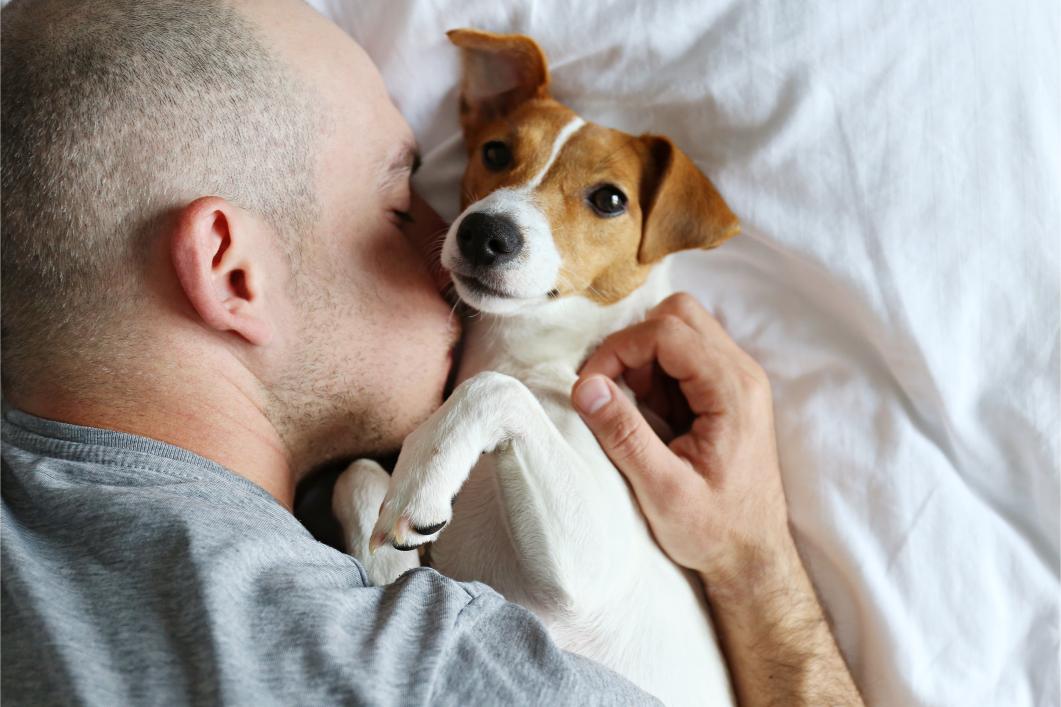How to Help Your Pet Adjust to Shorter Days and Less Sunlight

While seasonal changes can usher in some really good times, a lot of us—pets and people alike—experience feelings of doom and gloom this time of year. Shorter days mean less sunlight, and a monotonous, dull grayness can set in without intervention or support.
More than just the “winter blues,” Seasonal Affective Disorder (SAD) can be challenging to support. Characterized by changes in sleep, mood, and activity levels, SAD is recognizable and treatable.
Seasonal wellness.
A pet’s internal clock is regulated by the hours of daylight. Shorter days, and less sunshine, affect the body in these ways:
- The brain produces less serotonin, a chemical responsible for regulating mood
- The brain increases the chemical melatonin, which is released by the pineal gland and impacts sleep.
Consequently, experts agree that seasonal affective disorder in pets may cause grumpiness and sleepiness as winter sets in for the long haul.
Mirrored Moods
It is also possible that the pets in our care pick up on the slightest variations in our own moods. Accordingly, it’s possible that SAD in pets may be caused or made worse by our own decreased serotonin levels and increased melatonin levels.
Also, many people become ill at least once during the winter. This can impact how much exercise and activity a pet receives during the course of illness and may have an influence on their mood and temperament. Hire a dog walker or daycare to provide physical and mental stimulation for your pet.
Putting This Into Perspective
Evidence of Seasonal Affective Disorder in pets is anecdotal, but perhaps over time there will be more scientific research into the field. Certainly, depression, loneliness, and anxiety are common in pets, and may be identified and treated to ensure wellness and vitality.
Seasonal Affective Disorder may be soothed with additional enrichment opportunities. Aim for more outdoor workouts if weather allows and try to create moments with your pet in new locations. Opt into other socialization experiences like group classes, workouts, and daycares.
Keeping Pets Active Indoors
Extra mental stimulation can off-set any lack of physical exertion during the cold, dreary winter months. Provide more puzzle toys, make your own treats, and make your own agility course in your backyard.
Winter Wellness for Pets
If your pet shows pronounced lethargy, reduced appetite, and weight loss they need to be examined without delay. If you suspect emotional problems (whether they’re related to the weather or not), we recommend an exam as well to determine if there are any underlying medical concerns.
We may want to address concerns about your pet’s diet and nutritional needs. A well-balanced diet that consists of the right minerals and vitamins can reduce the need for nutritional supplements, and may have a significant impact on overall wellness.
The Urban Pet is always here to help you. Please call us at (615) 356-8993 with any questions or concerns regarding your pet’s behavior.
